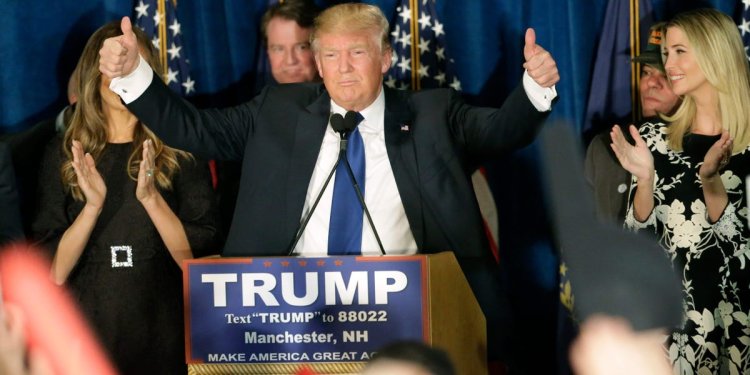The Supreme Court rules Trump is eligible to run for office again
In a surprise ruling ahead of Super Tuesday's primary elections, SCOTUS determined Donald Trump is eligible to run for office again.

AP Photo/David Goldman
- In a surprise Monday ruling, SCOTUS determined Donald Trump is eligible to run for office again.
- The decision is a massive victory for Trump, whose eligibility on Colorado's ballot was challenged.
- The decision was issued one day ahead of Super Tuesday when 16 states will hold primary elections.
The Supreme Court ruled unanimously on Monday ruled Donald Trump is eligible to run for president again, quashing legal challenges that loomed over the GOP frontrunner's candidacy for office.
The ruling is a massive victory for Trump, who had been disqualified from appearing on the ballot in Colorado, Illinois, and Maine — though the states' decisions had been stayed pending appeal. The former president was also facing legal challenges to his eligibility to run for office in California, New York, and Wisconsin, which the SCOTUS decision renders irrelevant.
Justices heard oral arguments about the case on February 8 and were not expected to issue a decision until they returned to the bench on March 15.
The decision came one day ahead of Super Tuesday, when 16 states will hold primary elections. Lawmakers across the political spectrum had been pushing for the court to issue a decision ahead of the primaries.
"This case raises the question whether the States, in addition to Congress, may also enforce Section 3. We conclude that States may disqualify persons holding or attempting to hold state office. But States have no power under the Constitution to enforce Section 3 with respect to federal offices, especially the Presidency," the court wrote in an unsigned per curiam opinion.
The court also went so far as to question any effort to try to remove a candidate from a ballot after an election, a topic that came up during oral arguments in the case.
"The disruption would be all the more acute—and could nullify the votes of millions and change the election result—if Section 3 enforcement were attempted after the Nation has voted," the opinion states. "Nothing in the Constitution requires that we endure such chaos—arriving at any time or different times, up to and perhaps beyond the Inauguration."
The court's three liberal justices, Justices Sonia Sotomayor, Elena Kagan, and Ketanji Brown Jackson, wrote a separate concurring arguing the court's opinion was too expansive.
"Even though '[a]ll nine Members of the Court' agree that this independent and sufficient rationale resolves this case, five Justices go on. They decide novel constitutional questions to insulate this Court and petitioner from future controversy," the three justices wrote.
The three justices said that the court should not have gone beyond concluding that Colorado did not have the power to remove Trump from the ballot under the 14th Amendment.
"In doing so, the majority shuts the door on other potential means of federal enforcement," they wrote. "We cannot join an opinion that decides momentous and difficult issues unnecessarily, and we therefore concur only in the judgment."
The SCOTUS decision overturns a December ruling from Colorado's Supreme Court which disqualified Trump from appearing on the state's ballot and from holding office due to his role in encouraging protesters during the January 6, 2021, Capitol riot.
In its decision, the Colorado Court cited Section 3 of the 14th Amendment, which includes a clause indicating anyone who has "engaged in insurrection or rebellion" or has "given aid or comfort" to those carrying out an insurrection is ineligible to run for office.
The Supreme Court had never before issued a ruling on the post-Civil War era provision known as the "insurrectionist clause."
Though the conservative-majority SCOTUS found he is eligible to run for office, the four charges brought against Trump by the Department of Justice over his conduct on January 6 continue to play out in court.
The Supreme Court is set to hear separate arguments in April over whether Trump can be criminally prosecuted for election interference charges, including those stemming from his role during the January 6 attack on the Capitol.
What's Your Reaction?




















